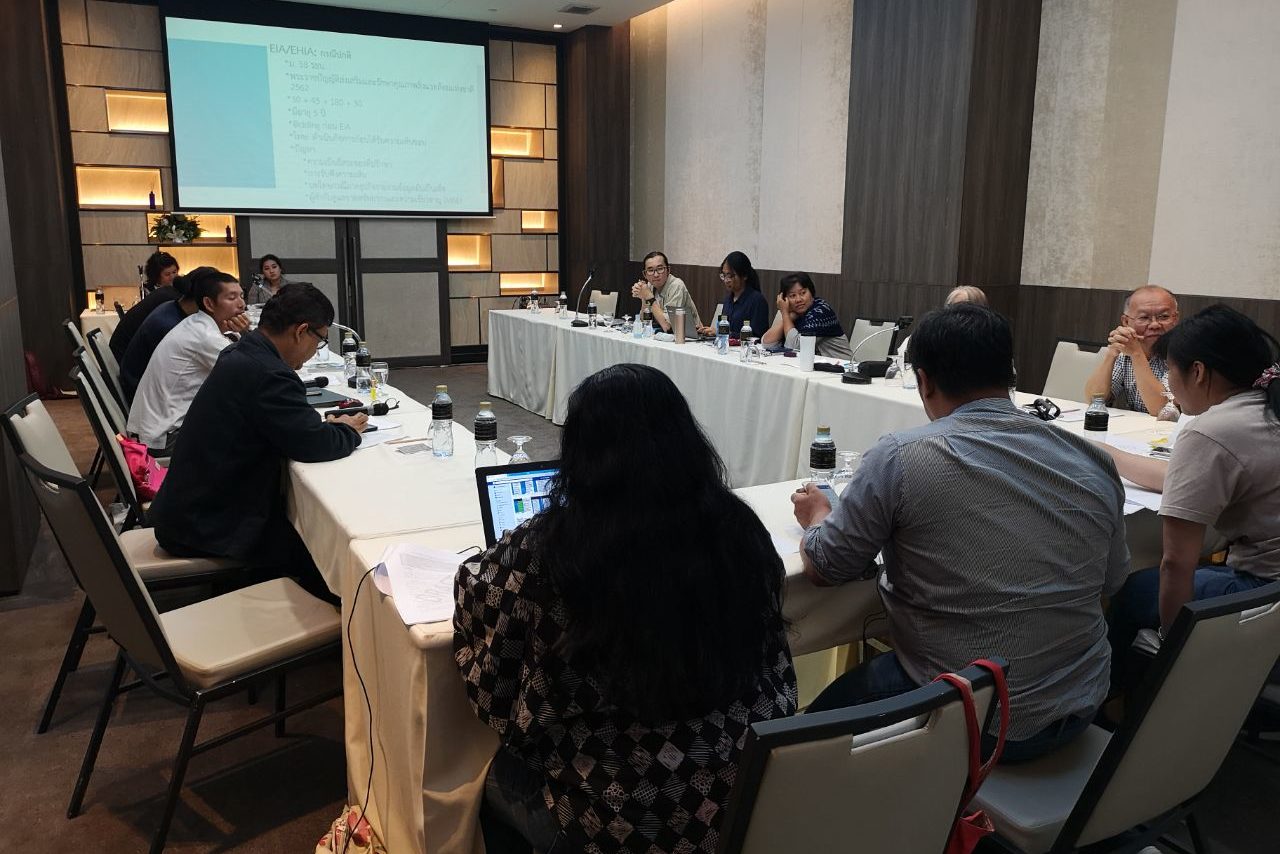On 13 July 2019, the ICJ hosted a discussion on the human rights consequences of Special Investment Zones in Thailand particularly focusing on the legislative frameworks of Thailand’s Special Economic Zones (SEZs) and the Eastern Economic Corridor (EEC).
Lawyers, members of civil society organizations and academics from across Thailand attended the discussion.
The participants explored existing adverse impacts and potential future impacts on human rights arising from the implementation of the current EEC and SEZ legal frameworks.
The discussion focused on: (i) governing authorities of the SEZs and EEC; (ii) designation of target areas and land acquisition; (iii) environment, health and well-being of the local communities; (iv) other rights of affected individuals and communities; (v) issues pertaining to workers and labour rights and (vi) roles of other stakeholders, including financial institutions, the National Human Rights Commission of Thailand, and the corporate sector.
The participants considered concerns with respect to Thailand’s duty to protect human rights under international human rights standards and identified key issues of concern relating to the legal frameworks of the EEC and SEZs.
During their discussion, the participants highlighted the lack of meaningful participation of affected individuals or communities at the policy and law-making levels and the absence of a formalized way for such individuals and communities to voice their concerns regarding their inability to exercise their rights connected to economic, cultural and social development and international human rights law.
The participants highlighted that the processes of land acquisition and classification of State-owned lands in the areas of SEZs and the EEC were allegedly not carried out in a human rights-compliant manner, and were not in line with the UN Basic Principles and Guidelines on Development-Based Evictions and Displacement.
Key concerns were raised regarding people and communities who has been living on lands upon which they depend for their livelihoods but to which they do not hold land title deeds.
Some participants also stressed the importance of strengthening Environmental Impact Assessment (EIA) and Environmental & Health Impact Assessment (EHIA) procedures.
Proposed improvements included the hiring of independent consultants to carry out EIA and EHIA assessments, effective review by an independent body to ensure the credibility of assessment reports, and other mechanisms to ensure effective monitoring and follow-up on assessments.
Participants also called for the following rights to be respected in the implementation of development-based policy:(i) the right to genuinely and meaningfully take part in public affairs; (ii) the right to take part in cultural life; (iii) the right to secure one’s livelihood; (iv) the right to enjoyment of the highest attainable standard of physical and mental health; (v) the right to water and sanitation; and (vi) the right of access to justice, which encompasses the right to effective remedy and guarantees of the due process of law.
They also urged financial institutions which fund the development of the EEC and SEZs to take a more active role to prevent and mitigate human rights risks.
This discussion will provide the foundation for further work and analysis by the ICJ in detailing the human rights consequences of special investment zones frameworks in Thailand, focusing on the implementation of SEZs and EEC policies. It will also provide the basis for ICJ strategic advocacy at the national level.
Background
The Eastern Economic Corridor (EEC) and Special Economic Zones (SEZs) are flagship economic schemes of the Thai government to boost Thailand’s economy after the military coup in 2014 through large-scale investments into special investment zones covering areas in 13 provinces of Thailand.
In 2015, 10 SEZs were established in 10 different provinces of Thailand as a means to create economically-productive areas in border cities linked to other countries in Southeast Asia.
The SEZs were established towards enhancing growth in 13 target industries. Each SEZ will have different targets depending on each location development and province strategy.
Launched in 2016, the EEC builds upon the former Eastern Seaboard project and is being developed in the eastern coastal provinces of Rayong, Chonburi, and Chachoengsao purportedly to encourage investment into 10 next-generation industries that use innovation and high technology.
The EEC is also designated to be a pilot model in developing other SEZ areas in the future.
The EEC is currently already in operation in part. Most of the SEZs are currently in the process of land acquisition or classification.
Criticisms raised during the discussion noted that (i) the SEZs and EEC had been established without carrying out assessments with the full participation of affected persons, groups and communities; (ii) local residents had been forced off their land without fair or adequate compensation; and (iii) allowing fast-track environmental impact assessments (EIA) could result in undermining the overall objective and effectiveness of EIA.





